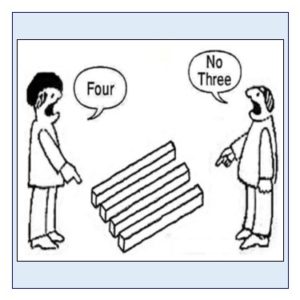Good and Truth
From
June 21, 2018
 In a political and social environment where people are inclined to select their truth from any number of conflicting sources, and where “fake news” is the indictment most used to discredit information we don’t like, it can be difficult to sort fact from fiction. But the truth matters, and ignorance or misunderstanding can hurt us on many levels.
In a political and social environment where people are inclined to select their truth from any number of conflicting sources, and where “fake news” is the indictment most used to discredit information we don’t like, it can be difficult to sort fact from fiction. But the truth matters, and ignorance or misunderstanding can hurt us on many levels.
So how can we know the truth? Indeed, how can we know anything with certainty?
Of course there are always two or more sides to every story, so one of our main challenges is to read and listen well, and to “consider the source” of our information as well as the content. Is this PART of the story really true? Is it free from conflicts of interest? Is it GOOD? Is it USEFUL? In the New Church we understand that truth is perverted and falsified if it is not good and useful. And it all needs to be seen in context, too. One truth can be qualified by another, yielding a whole different conclusion than an isolated statement does – as for example Paul’s declaration that we are saved by faith and not by works (Romans 3:21). This clearly has to be seen in the light of James’ statement that we are saved by works and NOT by faith alone (James 2:14-26). The POINT is not to claim merit for our works, but to do what we do for the Lord, because we honor Him and have faith in Him – a point made repeatedly by the Lord Himself throughout the gospels.
The same things apply in our social and political lives. It is certainly true that some immigrants enter this country under false pretenses or with ill intent, but thousands more enter out of pure desperation. One rule does not fit all; and in any case demographic studies show that we need immigrants to support our industries and our social service infrastructure. Again, welfare assistance can deter initiative in people who don’t want to work, but it is ALSO true that many people really need that assistance to get back on their feet so that they can be the productive citizens they want to be.
Likewise universal (or single payer) health care may be subject to a variety of abuses, but it can also solve a lot of problems for a lot of people. (In that connection some say we all have a “right” to health care, but perhaps a better way to think about this is that we all have a responsibility charitably to help one another.) So the Lord’s teachings about the necessity of rewards, punishments and order all need to be see in the context of the basic human need for freedom, love and understanding.
There is a whole branch of philosophy known as epistemology, which asks the question how we know what we know. In the New Church we understand that we’ll never know anything truly until or unless we learn to live in genuine charity toward our neighbors, caring for them as much or more than ourselves, and serving them as best we can.
